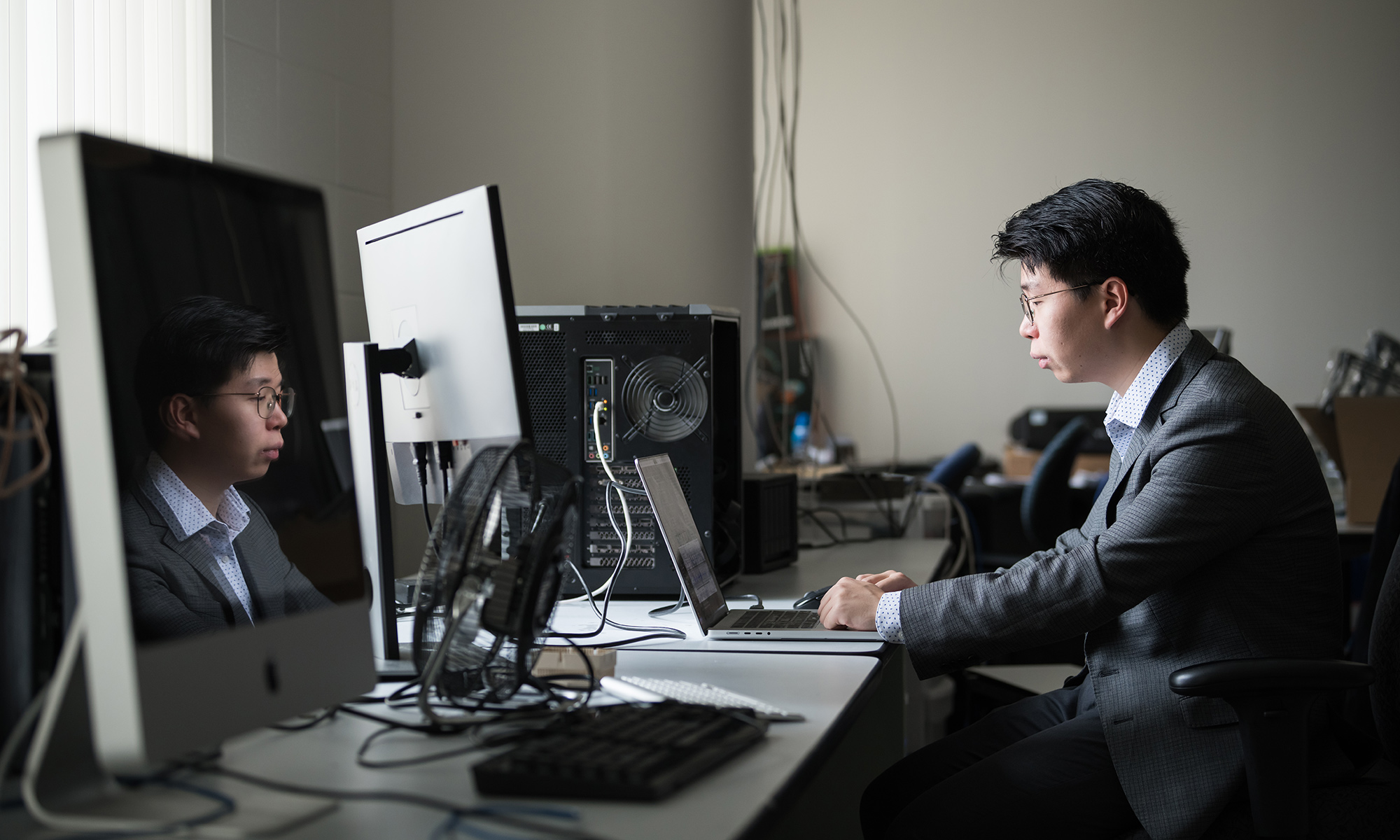
Audio deepfake detective developing new sleuthing techniques
A National Institute of Justice fellowship allows Rochester graduate student You “Neil” Zhang to develop novel defenses against deepfake scams.
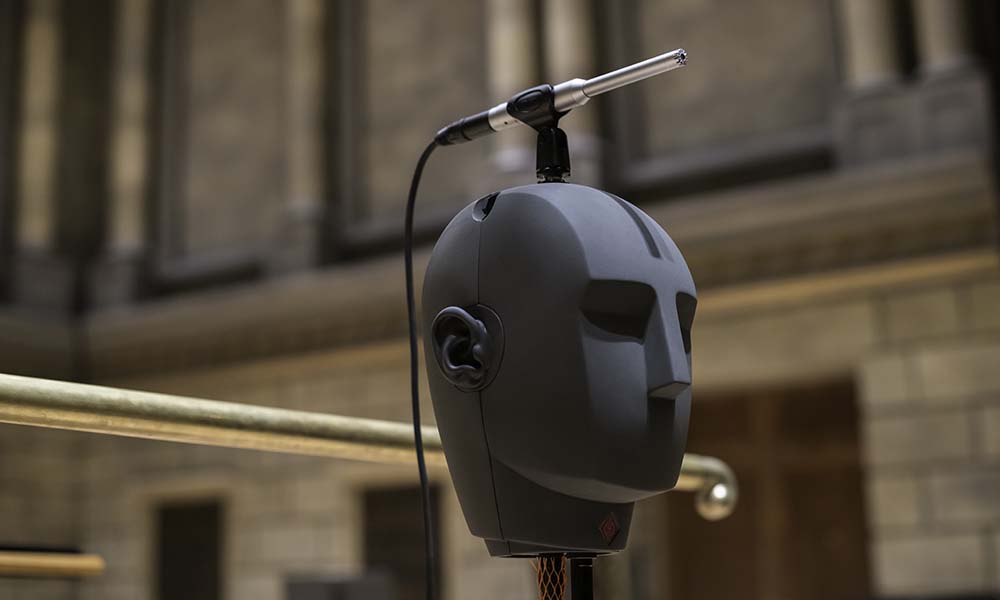
Sensory processing—in a virtual Kodak Hall
A multidisciplinary team from Arts, Sciences & Engineering and River Campus Libraries builds a virtual reality replica of Kodak Hall to be used in studies of how the brain processes light and sound.
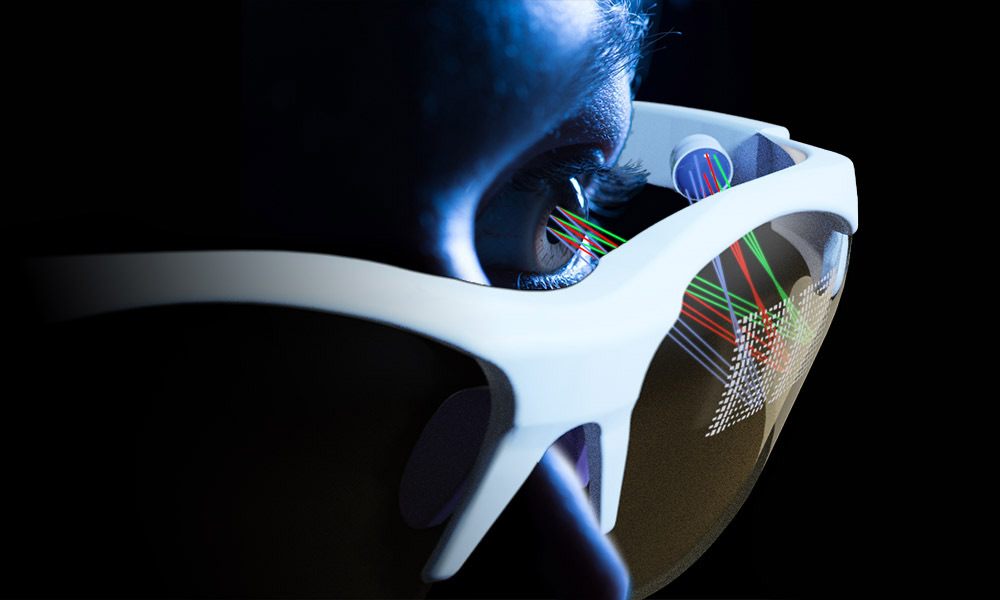
A new way to make AR/VR glasses look more like regular glasses
Rochester researchers are combining freeform optics and a metasurface to avoid ‘bug eyes’ in AR/VR glasses and headsets.
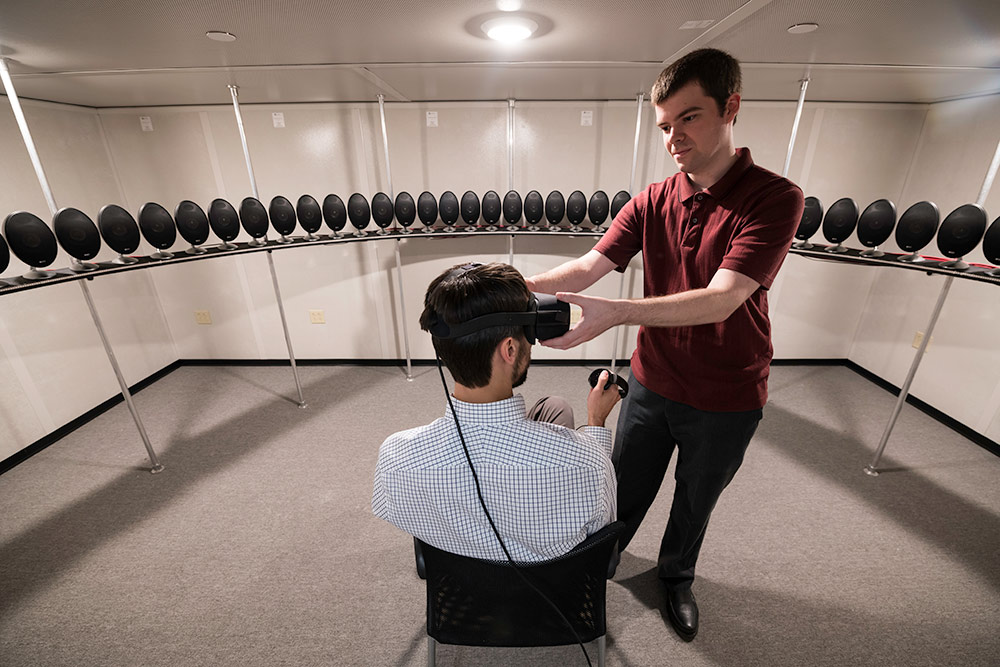
New training in AR/VR tech gives Rochester doctoral students an edge
A $1.5 million grant from the National Science Foundation will establish a structured, well-rounded training program for University scholars applying augmented and virtual reality in health, education, design, and other fields.
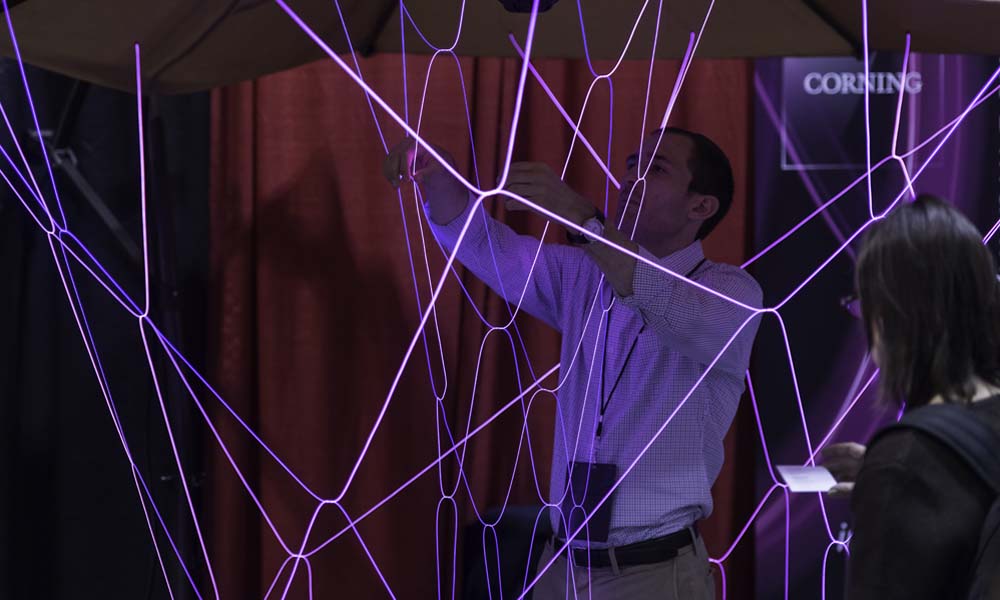
University co-presents 2019 Light and Sound Interactive Conference
The LSI Conference’s 2019 lineup features guest speakers from Facebook, Microsoft, the Department of Defense, and demonstrations from companies including Bose, Harman, and Amazon.
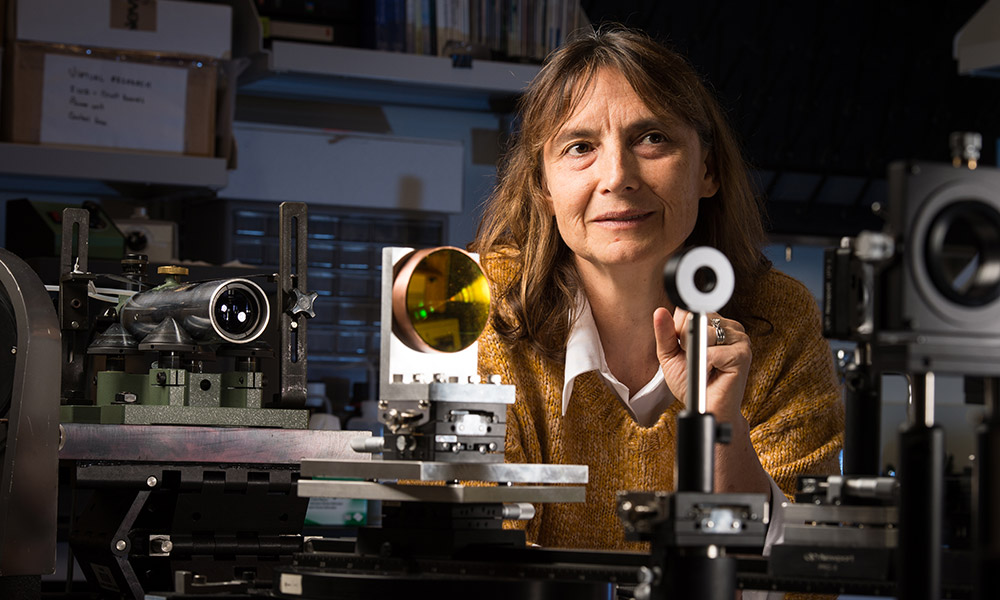
From a dancer’s form to freeform optics
Jannick Rolland, director of the Center of Freeform Optics, has 35 patents to her name and is listed among the top women pioneers in augmented and virtual reality.
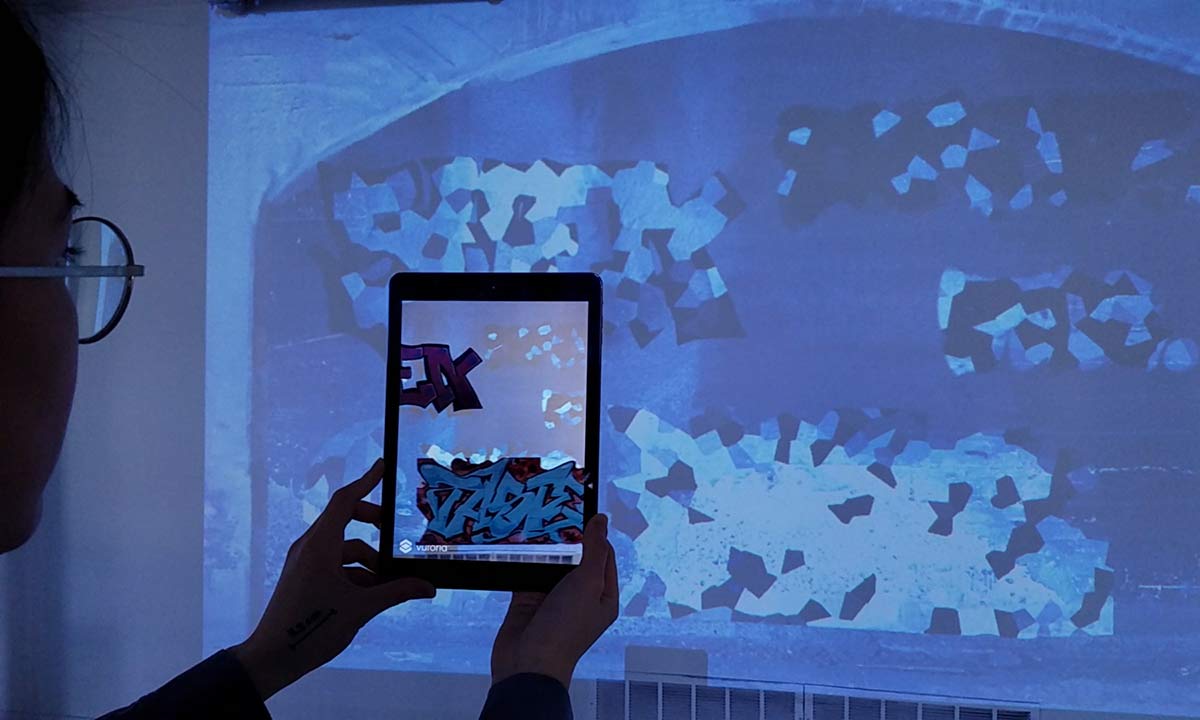
Seniors show beauty of urban art with augmented reality
Four Rochester students saw the beauty of graffiti art in abandoned city subway tunnels. Banding together as the ExSpace Artist Collective, they designed an augmented reality project to share that beauty with others.
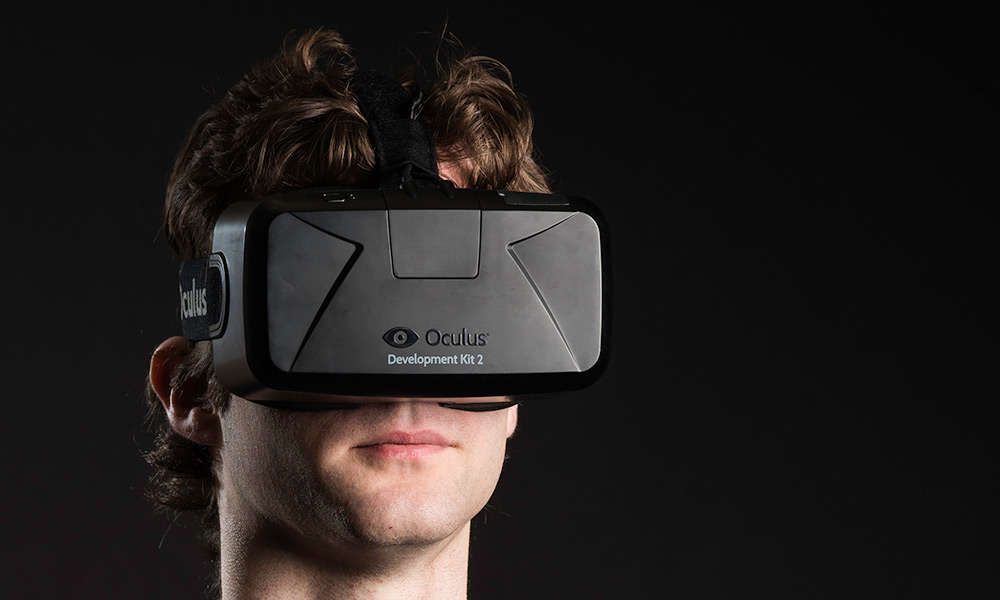
Hands-on AR/VR lab slated for Carlson Library
A new hands-on learning and research lab envisioned for the Carlson Science and Engineering Library will give students and faculty a place to explore augmented and virtual reality—regardless of their level of expertise.
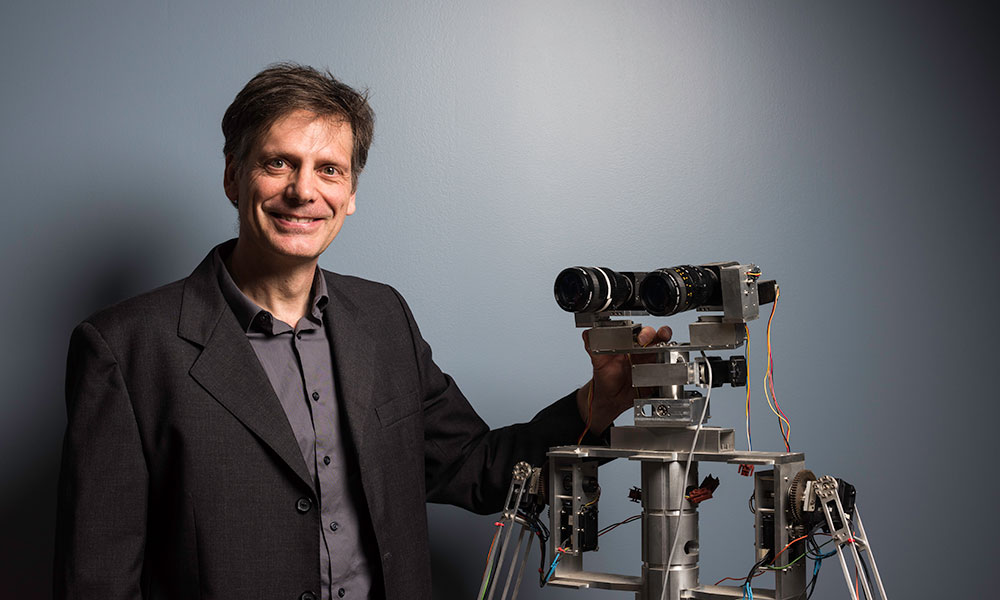
A professor and his robot study how we see
Meet Michele Rucci, a new professor in the University’s brain and cognitive sciences department, and his robot “Mr. T.” Rucci and his robot are using eye-tracking tools and virtual reality to replicate the small eye movements experienced by humans.
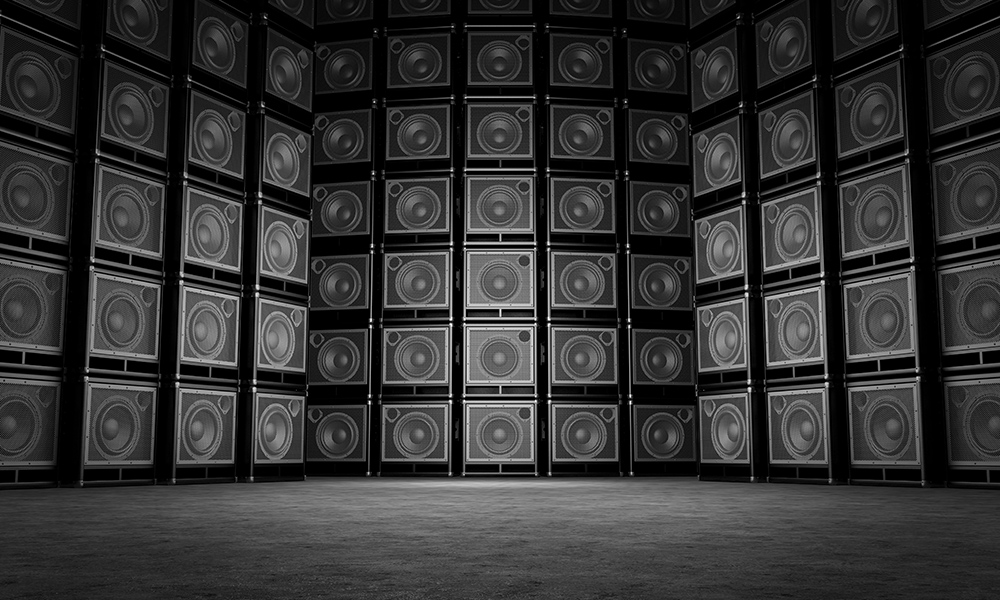
Giving virtual reality a ‘visceral’ sound
Using recital halls as their “labs,” and recording some of the best music students in the world, University researchers are creating virtual reality videos of concerts that literally immerse viewers “within” the performance onstage.
